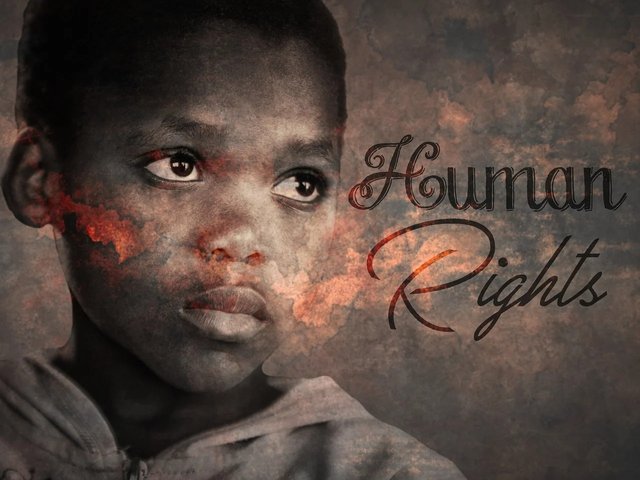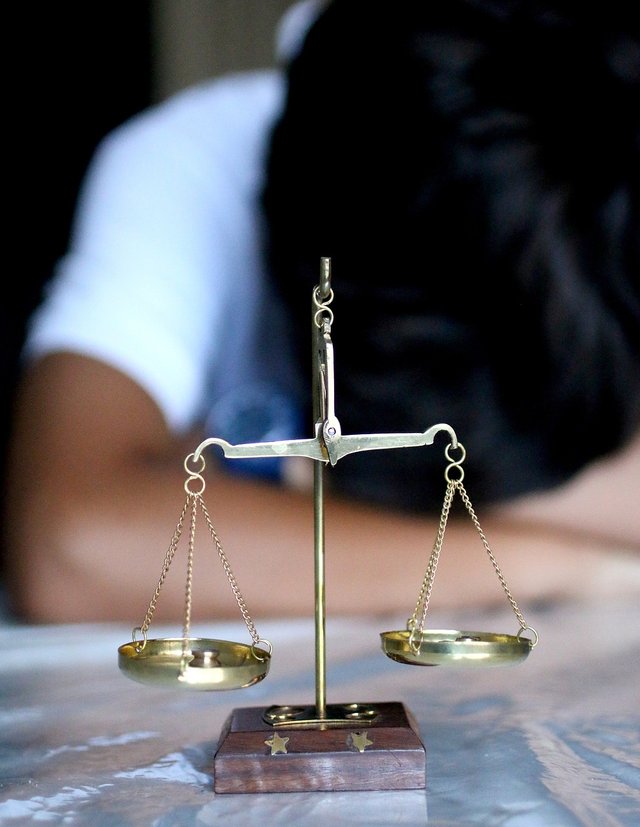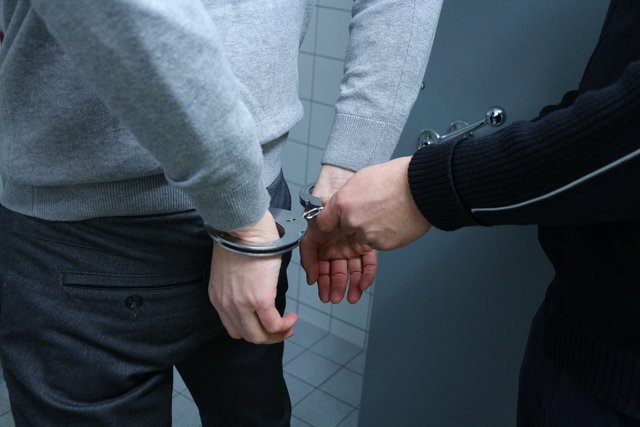SLC22-W3 / Human Rights (DDHH)
Part I
-. Based on what was explained in class, state in your own words and with explanations whether you consider that human rights are respected or violated in your country.
-. Please state, according to the laws of your country, whether Human Rights have the same value as the Constitution of your country, whether they are supra-constitutional, or whether the Constitution prevails over international treaties on Human Rights.
 |
|---|
Part I
In my country Nigeria i will definitely say human rights are been violated on a daily basis in various areas of life. Yes, we have a legal framework that guarantees these rights but we seem to lack the proper tools to implement and enforce them.
Some of these human rights violations include:
Police brutality.
There have been records of incessant use of force on the citizens and even extrajudicial killings by the police, especially from the division called Special Anti-Robbery Squad (SARS). A very significant protest against police brutality in 2020 (#EndSars) highlighted wide spread of misconduct and abuse from law enforcement agencies.Gender based violence.
There has been lots and lots of reported cases of domestic violence and sexual abuses. There is also the case of harmful traditional practices like multilation of female genital and child marriages that are still done in some regions. In all these, there is little or no support for survivors of this violence.Religion and Ethnic crisis.
Citizens of my country are faced with discrimination and persecution in violation of their rights to chosen religion. There is also issues of ethnic clashes between communities, farmers and herdsmen.Violence and Abuse from Armed Groups.
We have been experiencing violence and abuse from armed groups such as Boko haram in the Northern region and Unknown gunmen in the Eastern region who commit Kidnapping, killings, scaring people from carrying out their day to day activities.Corruption and Economic inequality.
Corruption has eaten deep into our system of government causing economic inequality. As a result there is misappropriation of health care, education and basic infrastructure which affects the minority and marginalised groups.
All this examples violates all most all of the human rights taught in class.
PART I B
In my country Nigeria, the Fundamental rights (as we call it) are enshrined in the constitution (1999 Constitution of the Federal Republic of Nigeria as amended). This makes the rights legally binding and foundational. These rights are outlined in Chapter IV of our Constitution. They include:
Right to life
Right to dignity of human persons
Right to personal liberty
Right to fair hearing
Right private and family life
Right to peaceful assembly and association and so on.
In Nigeria, the constitution is the grum norm hence it takes precedence over every other law including international treaties. International treaties on human rights can not over ride the constitution but where necessary or acceptable it can be domesticated into law by the national assembly.
Part II
-. I mentioned any organisation in your region that has jurisdiction over human rights. In your opinion, how useful it has been and how its operation has influenced respect for human rights in your country.
- Have you or someone close to you been a victim of human rights violations? If so, what was the situation and were you able to assert your rights?
 |
|---|
PART II
Some of the Human rights organisations in Nigeria are:
- National Human Rights Commission (NHRC)
- Nigerian Bar Association (NBA)
- Women Advocates Research and Documentation Center. (WARDC)
- Hope Behind Bars Africa
- National Agency for the Prohibition of Trafficking in person. (NAPTIP)
- Women Consortium of Nigeria (WOCOM)
With regards to Women Consortium of Nigeria, it is a Non-governmental organisation that is engaged in programs like the following, eradication of child trafficking, civic education, supporting good governance, eradication of women trafficking, grassroot advocacy, political empowerment, eradication of child labour, eradication of violence against women and sexual exploitation of children among others. They keep working tirelessly in achieving all of their goals since its inception in 1995.
These organisations are doing their best and working to address issues of human rights violations but the progress is usually slow and hence there is need for legal reforms, advocacy and stronger mechanisms to protect the human rights of Nigerian citizens.
PART II B
A few years back in my village, there was a young man named Chukwudi who was like an activist. He spoke about the wrong acts of the so called powerful elites who illegally grab other people's lands. After a community meeting one friday evening he disappeared, his family members and the community vigilante group searched for him for days but he wasn't found. Security officials denied knowing anything about his whereabout even though there were rumours of the elites having a hand in it because he spoke against them.
After a few months, his body was later found in a shallow grave in a nearby village. This caused a protest by the youths and forced an investigation which later exposed the culprit who were responsible for his abduction and murder.
Chukwudi's case became a cry out for justice for protection of life and right to freedom of speech.
Part III
Case study 1.
A woman loses her son when he dies at the hands of assailants who kill him to steal his car. The assailants are later arrested and prosecuted for the murder. He is serving the sentence provided for by law. However, the woman believes that her right to life has been violated and decides to file a complaint with the Inter-American Commission on Human Rights.
Please state whether you believe that the human rights of the victim in this case were indeed violated and whether the complaint to the aforementioned body should be admitted or not. Explain your answers.
Case study 2.
A person is arrested in the middle of an anti-government protest. He is beaten by police officers, resulting in his death. The prosecutor assigned to the case begins the investigation without being able to precisely identify the perpetrators of this murder. Several years go by and the victim's relatives turn to the prosecutor's office for an answer, and are told that the case has been closed because several years have passed without being able to identify the officers who caused the death.
Please state whether you believe that the human rights of both the victim and his/her family are being violated. Explain your answers.
 |
|---|
PART III
Case study I
From the case I do not believe that the victim's human right was violated. From the lesson in class we were taught that human rights are inalienable which means they persist in the individual, it can not be transferred from one person to another. It will seem as though the woman had transferred her son's right to life violation to herself even though justice has been served and the assiliant is serving the sentence provided by law. In this light, i do not think the complaint to the Inter-American Commission on Human Right should be admitted.
Case study 2
Yes! I believe they human rights of the victim and his family has been violated here. From our lesson in class we are taught that human rights are imprescriptible which means it can not expire under any circumstances. It was wrong for the case to be closed when the officers who caused the death have not been identified and made to face the punishment for their crime. The fact that several years has passed does not erase the violation of their human right.
The government is the guarantor of human right and as such must do everything within its powers to safeguard them.